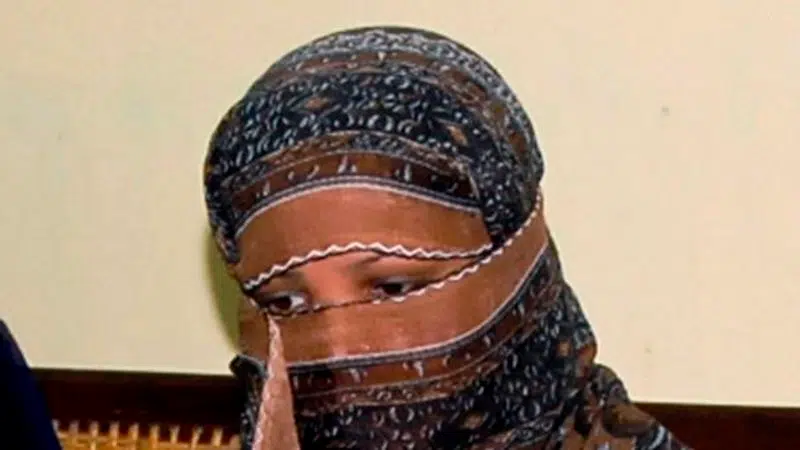
Christian woman acquitted of blasphemy in Pakistan arrives in Canada: lawyer
ISLAMABAD — A lawyer representing a Christian woman acquitted of blasphemy after spending eight years on death row in Pakistan says she has arrived in Canada.
Pakistani officials and others involved in the case said Wednesday that Aasia Bibi had left Pakistan to be reunited with her daughters in Canada, where they had been granted asylum. Her lawyer, Saif-ul Malook, said she had already arrived in Canada.
Bibi was convicted of blasphemy in 2009 after a quarrel with a fellow farmworker. The Supreme Court overturned her conviction last year, and she had been in protective custody since then.
